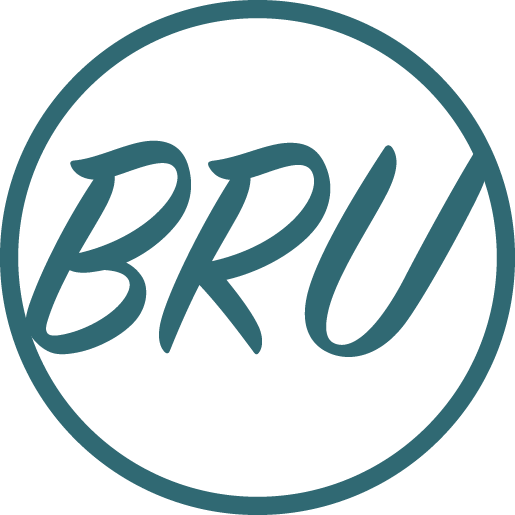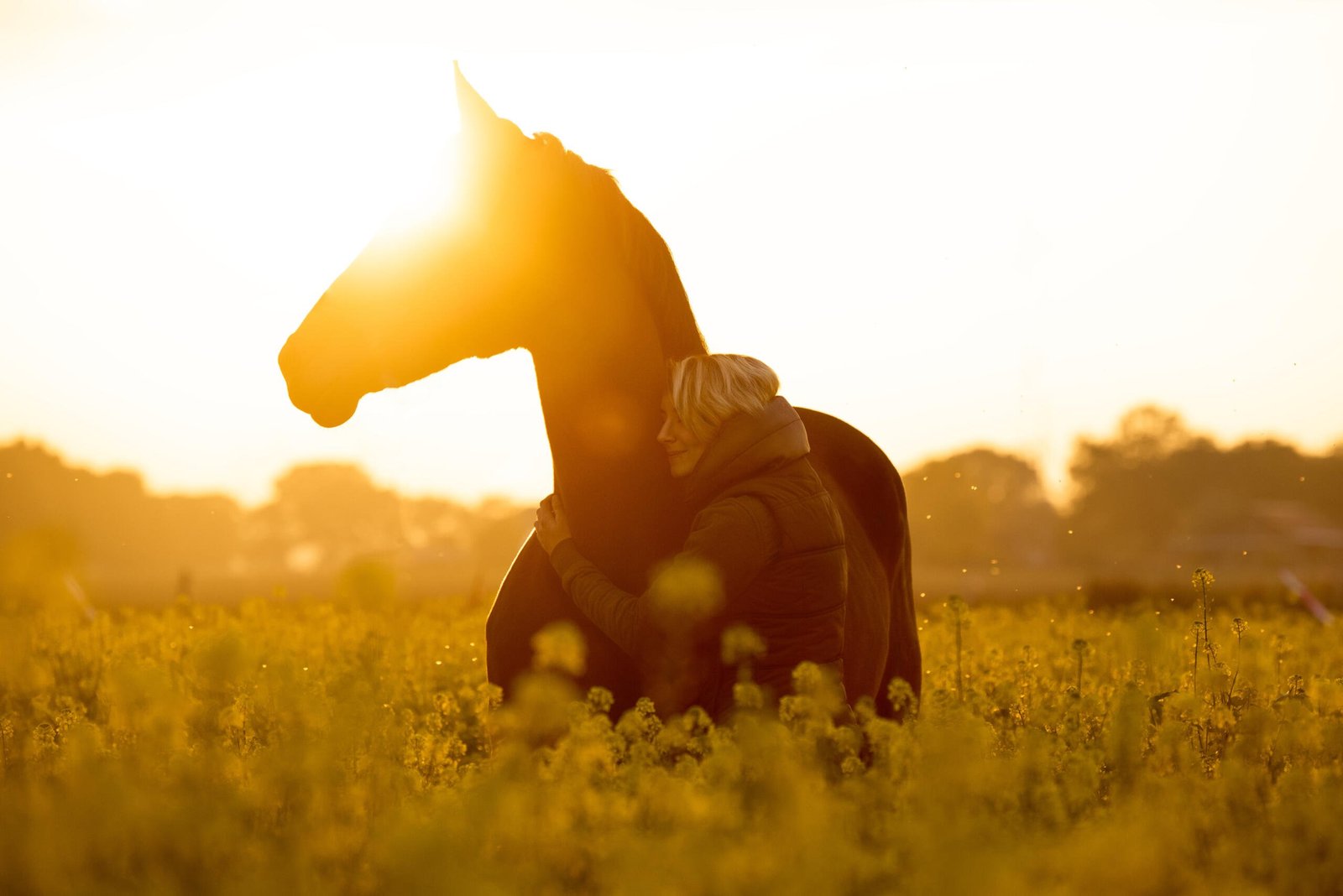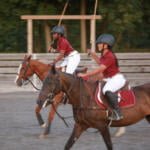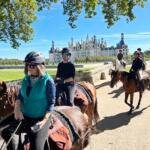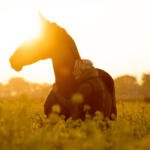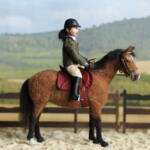Rachael and Rooster Loucks are the founders of Operation Horses Heal, a non-profit organization that provides equine-assisted learning (EAL) to veterans and their families in rural Wisconsin. After seeing how EAL can benefit veterans, Rachael wanted to use her horse background to increase access to those in need.
BRU spoke with Rachael about the skills EAL builds, the impact horses have made in her own life, and the surprising catalyst that urged her to make Operation Horses Heal a reality after years of dreaming.
This interview has been edited for length and clarity.
BRU: How did you get involved with horses?
RL: I was that kid who had lots of My Little Ponies. I got my first real pony when I was in fourth or fifth grade, and I participated in 4-H. Later, I began a bachelor’s degree in animal science, but I changed my major and stepped away from horses for a long time.
When I returned, I decided to get my Wisconsin Open Show judge’s card, but it wasn’t really my jam. Then, I volunteered for North American Western Dressage. From there, I stepped into equine-assisted services.
BRU: What inspired you to create Operation Horses Heal?
RL: Rooster was really the drive behind this. Both my husband and I have veterans in our family, and my husband spent time in the National Guard. We have relatives who have served active duty, and, unfortunately, my husband has lost close relatives to suicide after military service.
Initially, we volunteered for a similar organization four hours away from us, and we said, “It would be cool if we could create something like this in our area someday.” We had that in the backs of our minds for a while.

BRU: Was there a catalyst that pushed those dreams forward?
RL: The home we lived in actually developed a mold problem, and we needed to move. When we saw the property we live on now, we knew it would be perfect, so we finally started planning.
I became certified for equine-facilitated learning through the HERD Institute, and I said, “Before we try the whole nonprofit thing, why don’t I see if there’s interest in our community for something like this?” I started a for-profit program called Up There that serves the civilian community.
My initial goal was to pay for hay during the first year and then to pay for farrier bills, and we were able to meet those goals, so we formed a board of directors. Then, a local tavern and restaurant did a fundraiser to pay for our 501(c)3, and suddenly Operation Horses Heal was up and running.
BRU: What are the goals of your program?
RL: Our mission is to provide inclusive support to veterans, active service members, and their families through equine activities. Our program is entirely ground-based, though we plan to add a ridden program eventually.
We work to reduce veteran suicide by increasing connection and reducing loneliness. We’re in a rural part of the state, and our goal is to connect veterans to nature and to other veterans and people.
Our intent is not to replace working with a therapist or a counselor—we’re not a therapy program, and we don’t diagnose or treat conditions. We offer equine-facilitated learning to build skills that will hopefully increase participants’ life satisfaction and overall wellness.
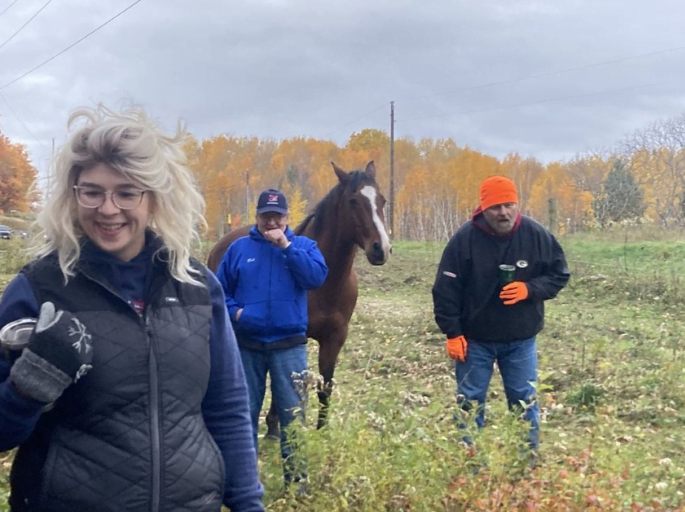
BRU: What are some of the skills that you focus on?
RL: We focus on things like stress management techniques, mindfulness, grounding, creative problem-solving, communication, and listening skills.
When I work with kids in our civilian program, we talk a lot about friendship skills. When I work with adults, we focus on skills that will support success in marriage, employability, and things like that.
BRU: How else can your program help with suicide prevention?
RL: Reducing loneliness and increasing connection is the first thing. My volunteers and I are also trained in mental health first aid and the VA S.A.V.E. models so we can recognize if somebody is in crisis.
That training allows us to connect people to appropriate providers and resources. We also work to reduce the stigma associated with talking about what’s going on for veterans internally. I believe those are really important ways to reduce suicide.
BRU: What kind of horses are good at this?
RL: We currently have six horses and three donkeys. For participant safety, I need to be aware of how an individual horse or donkey might respond to certain situations, but they can essentially show up as they are.
I need a few basic skills, such as being able to halter, lead, and tie safely, but our horses and donkeys shouldn’t have a lot of trained responses, be shut down, or be overly desensitized.
Since we do non-ridden work, I want them to be curious and authentic and to exhibit natural responses to things that they encounter. Most of what we do involves interacting at liberty in their own space with humans.
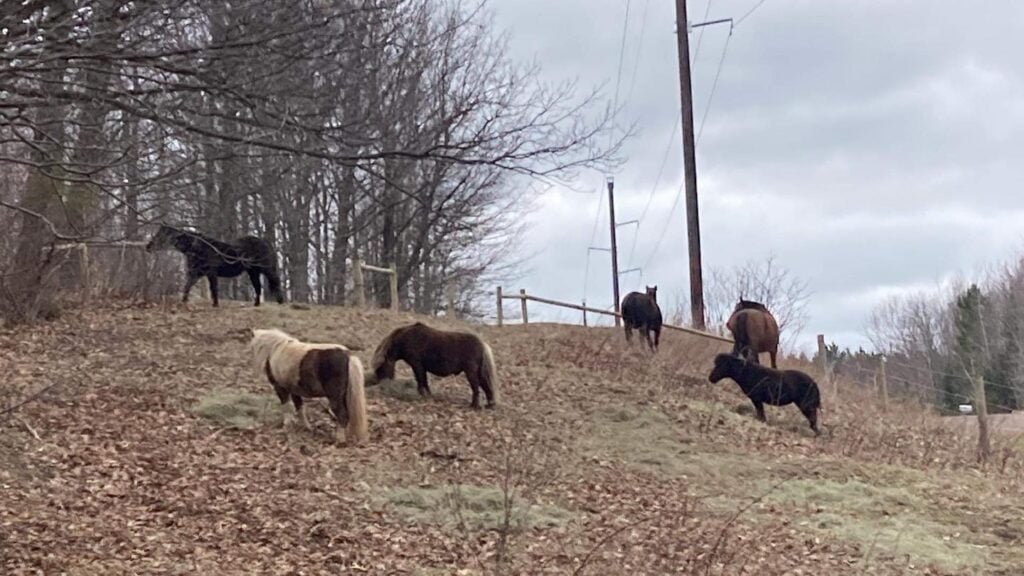
BRU: Why is equine-assisted learning so beneficial for veterans?
RL: Horses and donkeys can ground us. They help us connect to what’s happening in the present even if we’re dealing with a past trauma that we’re replaying over and over. They help us pay attention to how those things impact us now and how they might affect our relationships with other people.
Because of their natural behaviors and high need to preserve themselves, horses and donkeys provide humans with insight into how they’re showing up in different situations. To connect with a horse in an authentic and true way, we’ve got to tune into what’s happening in our own bodies.
If we really want to connect, we’ve got to regulate ourselves. We’ve got to get our brain and body connected so we don’t appear scary to the horse.

BRU: Do you have any favorite stories about seeing equine-assisted learning in action?
RL: I had one participant who needed to work on setting healthy boundaries. She was seeing a therapist about some trauma and coming to me to practice the skills she had learned in therapy.
We have a horse, Cody, who’s not super into people most of the time— he usually moves away. But in this particular instance, he moved right into this person’s space.
He pulled at the zipper on her jacket, and he grabbed the clipboard she was drawing on and took off with it. My role was to support her in setting a physical boundary with him, which she would not do.
It took several sessions before she was willing to set that boundary, and he just kept showing up for her like, “I’m going to give you all the boundary practice you need, here.” Finally, we were able to make that connection between what was happening in our sessions and how that applied to her life.
BRU: How has your approach to horsemanship changed over time?
RL: I used to discount the benefits of non-ridden activities for both the horse and the human. In my younger years, I mainly focused on the act of riding itself or on specific training tasks.
As I’ve gotten older, I’ve learned to enjoy activities with my horses and donkeys where I’m not trying to accomplish anything; I’m just being present and enjoying time with them.
I wish that I had done more of that in my younger years—that I’d listened to my gut and embraced that mindset a bit more instead of feeling like I needed to prove myself through the activities I was doing.
Now, I mostly “just” trail ride. I say “just” in quotes because trail riding is important too!
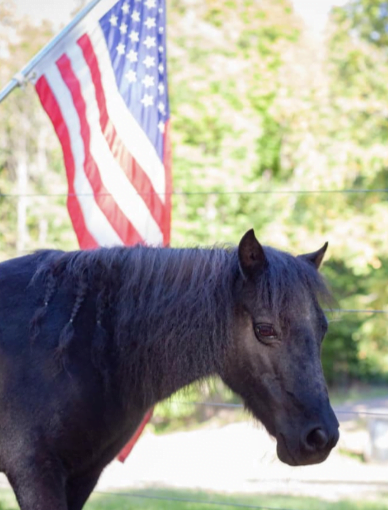
BRU: Can you tell me about a special horse in your life?
RL: My first horse was a little palomino Shetland pony named Misty. I knew nothing about horses, and she dealt with all of my shenanigans and handled them happily. She was just like, “Okay, yeah. Sure, human.”
She was phenomenal, and I didn’t know. I mean, I thought she was special, but I didn’t grasp how special until later when I had more experience.
BRU: Where can people find a program like this?
RL: Searching online is a good place to start. They can also explore websites such as PATH International or the HERD Institute.
I recommend people find a certified provider because that indicates the provider has some underlying education about the modality they’re delivering—whether it’s therapeutic riding, equine-facilitated psychotherapy, or equine-assisted learning. Certification signifies that they’re not just throwing something together and doing potential harm by stepping into spaces or bringing up topics that they’re not qualified to address.
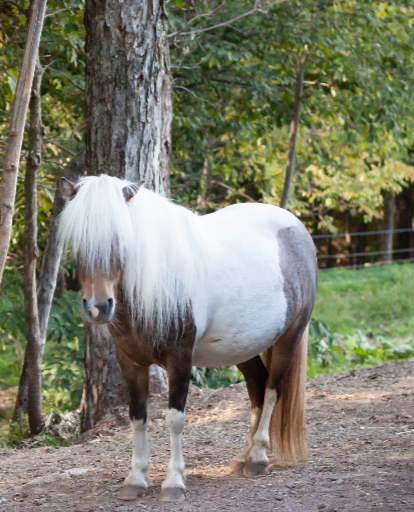
BRU: What have you learned from your horses and donkeys?
RL: Horses have taught me to show up authentically, to be true to myself, to find peace in the moment, and not to dwell on the past or get stuck on what might happen in the future.
That doesn’t mean you ignore past mistakes or fail to learn and prepare for the future, but it’s helpful to spend a little less time in those places and a little more time on what’s happening in the moment.
One of our little donkeys has also taught me to find joy in little things. He shows up with so much joy in everything he does, so I try to add a little more joy into my day as well.
To connect with Rachael, visit the Operation Horses Heal or Up There websites for more information.
